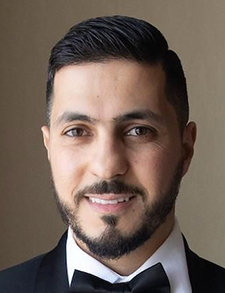We Don’t Talk About Firearms, No, No, No!

Dr. Abd-Rabu
Presenters: Taylor M. Rosenbaum, MD, Rathi Asaithambi, MD, MPH, EdM, and Emily Hopkins, MD
This PHM2023 session focused on the critical issue of firearm safety and its impact on pediatric patients. The presenters highlighted alarming statistics indicating the severity of the problem in the U.S. Specifically, firearms are the leading cause of pediatric deaths. Each day, 12 children lose their lives to gun violence, while another 32 sustain injuries from firearms. This dire situation demands immediate attention and action.
The session emphasized the role of anticipatory guidance by health care practitioners, especially when discharging pediatric patients. A poignant example illustrates a scenario where a three-year-old boy is set for discharge, and his family owns two guns at home. It raised the question of whether health care providers include firearm safety guidance in their regular anticipatory guidelines.
Furthermore, the presentation delved deeper into disparities, shedding light on the fact that Black youth face a higher risk of firearm deaths compared to their white counterparts. This information underscores the importance of targeted interventions and awareness campaigns for specific demographics.
For adult hospitalists, the session offers insights into a pressing pediatric issue but also emphasizes the universality of the firearm safety concern. It underscores the need for comprehensive firearm safety guidance across all age groups.
Key Takeaways
- Death by firearms is the primary cause of pediatric deaths in the U.S., emphasizing the urgency of addressing this issue.
- There exists a disparity in firearm-related violence with Black youth being particularly vulnerable.
Health care clinicians, including hospitalists, have a vital role in offering anticipatory guidance on firearm safety, irrespective of the patient’s age.
Dr. Abd-Rabu is a senior postdoctoral research associate at Mayo Clinic in Rochester, Minn. He also currently conducts research projects at the department of pediatric surgery at the University of Illinois College of Medicine in Peoria, Ill., and is a co-author of the global burden of disease study at the University of Washington Hans Rosling Center for Population Health in Seattle.